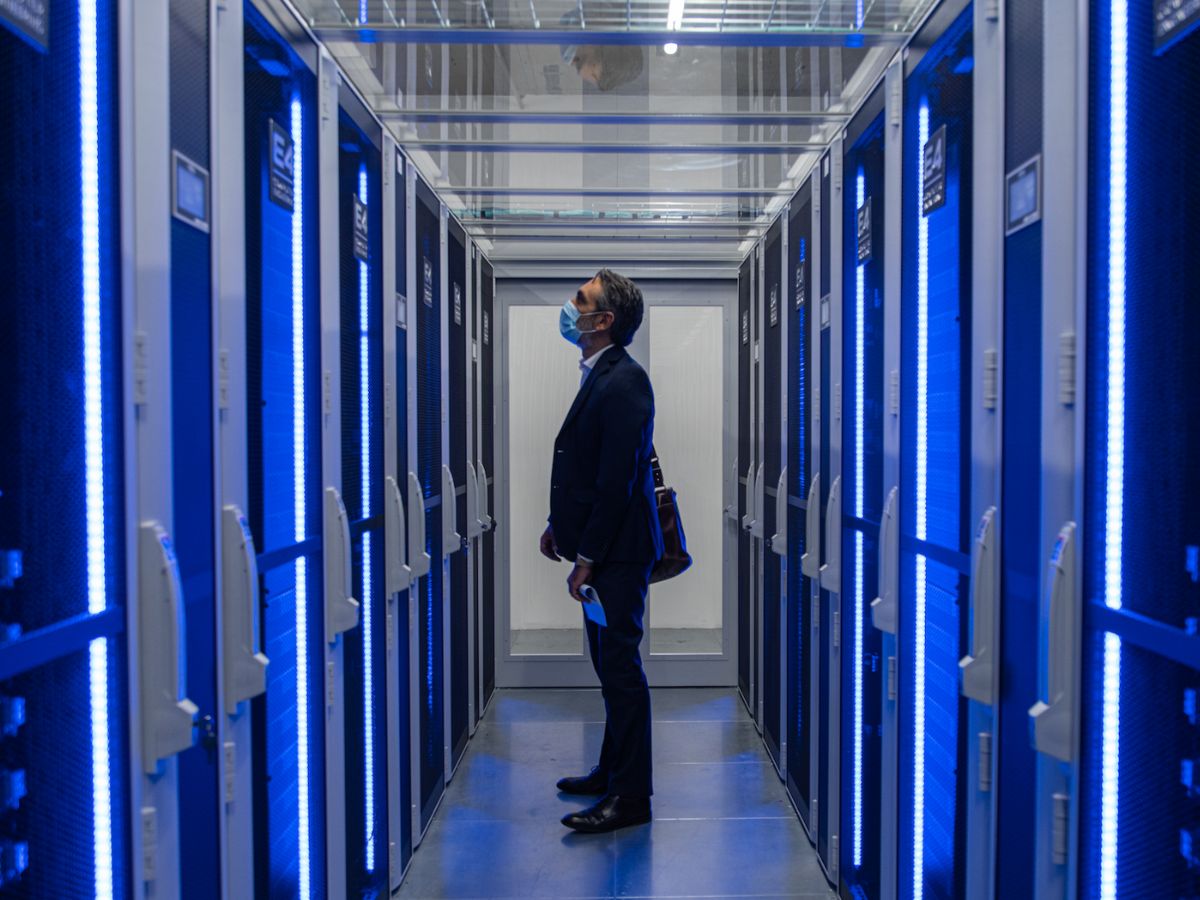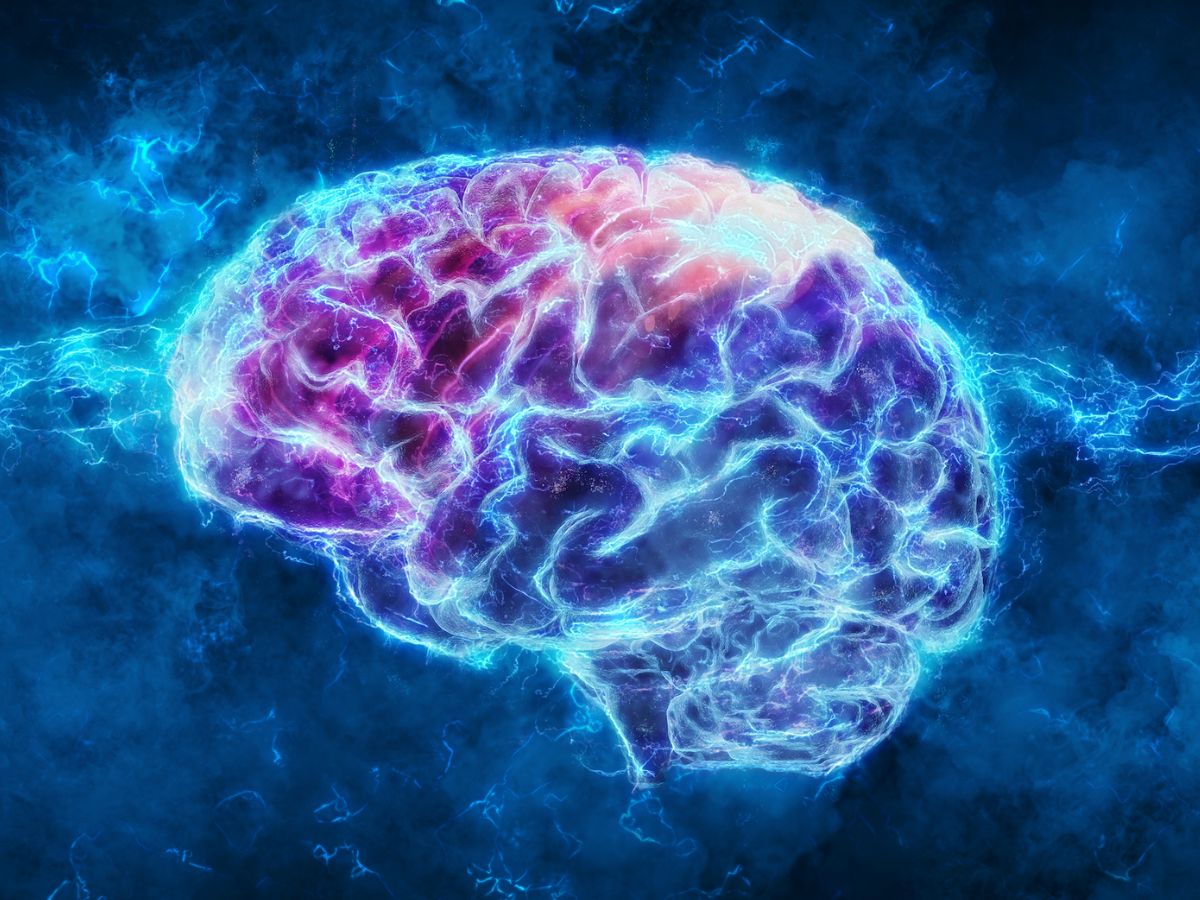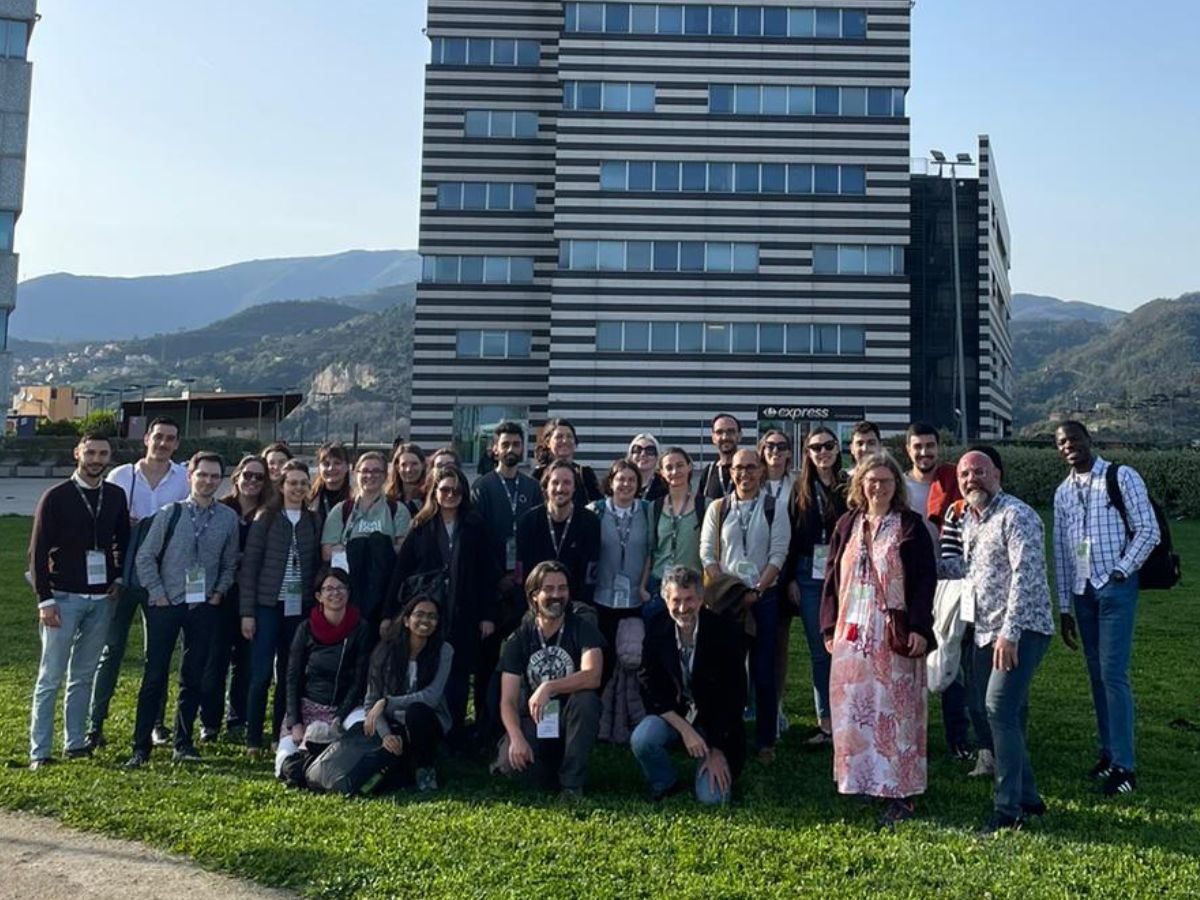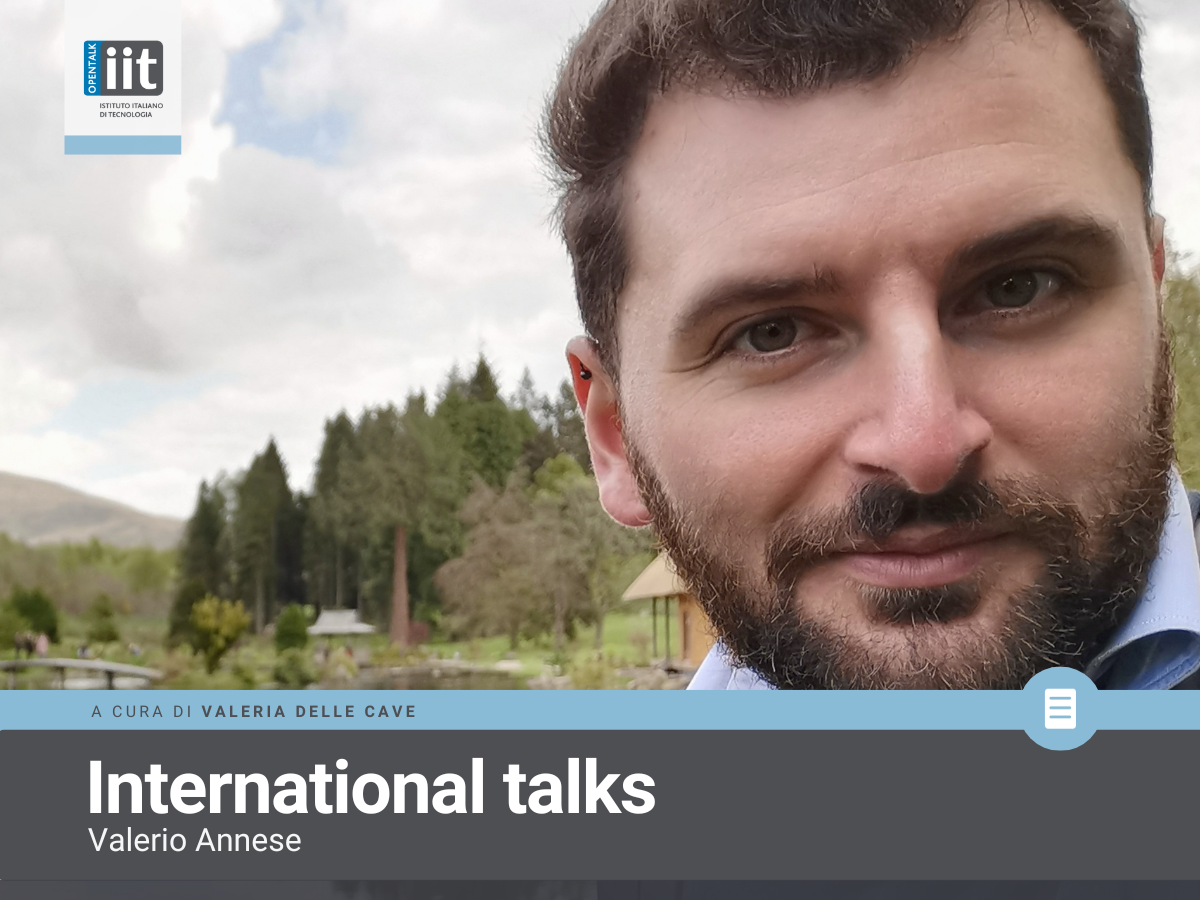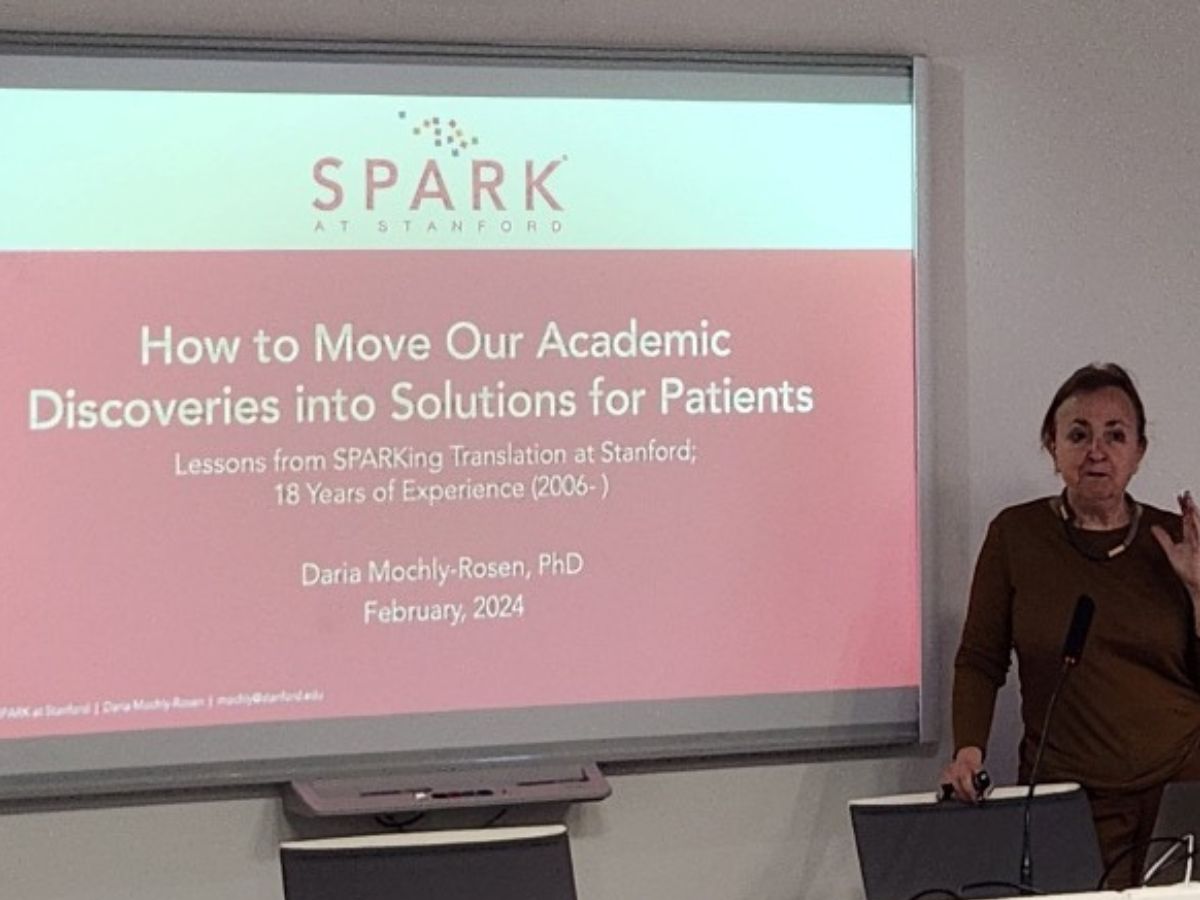Interview with IIT’s Scientific Director Giorgio Metta
Three years after taking on the role of Scientific Director at IIT, how do you rate your experience?
The first three years at the helm of IIT have been an extraordinary human and managerial experience. It has been an immense challenge, on one hand to push the development of our research and technology transfer activities even further, and on the other to consolidate the Institute’s incredible wealth of knowledge and success: 32 start-ups launched, 30% of the budget obtained through competitive calls, over 50 prestigious ERC grants, 1,200 patents, and 2,000 people, 80% of whom are dedicated to research.
It has also been a challenge to deal with the unexpected. Just a few months after I took office, we were hit by the pandemic, which certainly affected our work, primarily from a human viewpoint, but subsequently in other ways, such as, for example, the all-too-familiar problems connected to the supply chain. The pandemic also limited travel, and this consequently limited the acquisition of new and young talents from countries outside the EU. The last year has been hallmarked by a very complex energy market, which has had a major impact on our laboratories that use highly energy-intensive equipment, and this is combined with the shock of the war in Ukraine, which certainly exacerbated the problem of rising costs. These events have given us the opportunity to develop our work on the theme of sustainability, in the form of technology for the plastic cycle, the water cycle, high-precision agriculture, and likewise technology for photovoltaic energy or the production and storage of hydrogen. This has opened up a new phase for IIT, hallmarked by a greater awareness of the potential economic and social impact of the research that we perform. In addition, on these topics IIT has recently been involved in a number of projects financed within the NRRP framework, at a local level but also at the national dimension as a result of the eleven Centres located in Italy’s principal universities.
With a view to keeping IIT at the cutting edge of science, over the three-year period I have been working on updating the Institute’s Strategic Plan, placing specific emphasis on the impact of computational techniques in the development of new knowledge in our traditional subject areas: robotics, nanomaterials, and life technologies, as well as, of course, the above-mentioned computational sciences as such. These topics are not only part of my cultural background in the field of robotics, but they have become the key to the technical and economic development of the entire planet.
These have been three very challenging years, taking IIT from its “start-up” phase to that of a stable presence on the Italian, European and even global research scene, with the objective of becoming a familiar name, on a par with the most famous brands in science and technology. Three years that can be described in many different ways, except for the expression “business as usual”. Three years in which IIT has in any case grown in all its areas of interest.
Working with prestigious institutions or large companies has always been, for those people who can achieve it, an important factor in career advancement. Is this value, underpinned by the meritocratic system, beginning to be visible for scientists and managers at IIT?
It is thanks to our meritocratic model, inspired by the finest international examples (such as MIT and the Max Planck Institute), that we have continued to grow, always focusing on quality by means of the ongoing assessment of our technical and scientific work. Merit has always been our only guiding parameter. The results are tangibly visible in the career development of those people who have shared part of their journey with us. Over the years, IIT’s scientists have taken up top positions at famous universities and research centres. Some of our former collaborators include the director of robotics at Google-Deepmind with whom I personally shared work on many wonderful projects; there are professors and academicians in Glasgow, Hamburg, Aachen, at the Queen Mary and King’s Colleges in London, but also in Japan and the United States as well as in almost all European countries. A different path has been taken by our younger staff members who have chosen the path of enterprise, creating new jobs in more than 30 start-ups. Amongst the people who helped to bring IIT to where it is today, we should not forget the Minister for Ecological Transition in the current government. This is a position of great prestige both because the ecological transition is a “project” that calls for a great deal of advanced technological innovation, and because the issue is the greatest global challenge of this century.
Which areas of IIT’s research have seen the greatest growth?
IIT’s growth has been organic. Since it does not have a compartmented organisation, it would be impossible to single out closely-defined subject areas, or to refer simply to growth. Moreover, it would be inaccurate to use the term “growth” as if the measure of results could be expressed solely by numbers. It is better to look at concrete examples.
In 2021, we saw the birth of four start-ups in the area of life technology. All of them are multidisciplinary: they comprise nanoparticles forming a “liquid retina”, electrodes for recording neural signals from the brain, nanofabricated sensors, and new drugs designed with the help of computational techniques.
We have grown in the area of computational sciences – in maturity rather than in the number of collaborators – in part by investing in a state-of-the-art supercomputer. This has enabled us to begin the analysis of genomics data to suggest the repositioning of certain drugs in order to make them more effective. At the CMP3@VdA Centre in Aosta, we have implemented a complete software process that, starting from the patient, ends up by suggesting the potentially most suitable drug to the doctor.
We increasingly need artificial intelligence, and at the end of 2021 we have enhanced our research activities on AI applied to robotics and neuroscience, which involves the development of new and sophisticated algorithms, and the investment of resources reaching in excess of 3 million euro. The Istituto Italiano di Tecnologia (Italian Institute of Technology) has also become the first Italian hub recognised as part of the European ELLIS network, now in the well-deserved company of the University of Modena and Reggio-Emilia, and the Polytechnic Universities of Milan and Turin.
Last but not least, in the revision of the Strategic Plan, we have held the theme of sustainability in high consideration. We are scientists and technology developers. We have the responsibility to find technological solutions that can deal with the very serious risks brought by climate change. We cannot ignore the fact that within this decade we must change the way in which we use natural resources. IIT has the knowledge, in the broadest sense of the word, to tackle a wide range of problems. We work on robotics for precision agriculture, right through to new fully biodegradable materials, not forgetting those for the production of hydrogen or methane, CO2 capture, new flexible solar panels, and devices for the health of the future, at reduced costs and available to all.
We will increasingly be working in this direction, in the hope that these activities receive political backing at all levels, along with the notable investments required.
Fund-raising is also an important objective for IIT. How has this issue been addressed, and what are the results to date?
I have already mentioned the four start-ups created in 2021 in the area of life technology. These account for a total investment of almost 20 million. In IIT’s recent history, we should also mention Movendo Technology, formed at the Foundation in 2016, which brought robotics for post-trauma rehabilitation to the market; or BeDimensional, operating in the area of new two-dimensional materials, as suggested by its name.
Funding, however, often starts with obtaining competitive projects. IIT develops basic research without which we would not have the expertise and technology that can be brought to the market. Research is driven by scientific curiosity, and it is financed initially by IIT itself or, very often, jointly with the EU by means of its funding competitions. The Institute has been remarkably successful in obtaining ERC funding, which over time has been a measure of the quality of our Principal Investigators (PIs). In addition, it has encouraged the launch of new research activities, which then continue in the form of so-called Proof of Concept projects (also funded by the ERC), or collaborative projects such as those of the European Innovation Council (EIC). The final stage may comprise the organisation and promotion of start-ups. In the future, the path of enterprise development will also be supported by funds allocated as part of the NRRP. As an example of these resources, I would like to mention the project that received finance amounting to 109 million euro this year, for the creation of a territorial Innovation Ecosystem called RAISE, in which IIT has the responsibility for technology transfer activities on a transversal scientific basis in the areas of robotics and artificial intelligence.
IIT’s capabilities have always led to technology transfer. Having broken down the barriers between areas of knowledge, those between basic and applied research have also collapsed. Today there is a continuum linking ideas and applications. After all, we perform research because we are naturally curious, but also because we feel that it is our duty to improve the condition of human life. Whether this is achieved by robotics, life sciences, the development of new materials or a mix of all these is not important.
You attribute great importance to technology transfer. How do you think this activity can be developed, and what is IIT’s positioning in this area compared to other international research centres?
IIT’s programme for technology transfer takes the form of a series of standardised activities: we file patents, we license our technological systems, we develop sponsored research projects or laboratories managed jointly with companies, and we help and support business creation, in part by means of specific training. All this is performed by a team that endeavours to maximise opportunities with dedication and absolute commitment. We have a network of companies, venture capitalists and business angels, funds and instruments enabling us to stay constantly in contact in order to explore the most promising opportunities for technology transfer. For example, I can mention the very recent launch of RoboIT, a programme of “proof of concept” projects developed in collaboration with CdP Venture and a network of universities on robotics issues.
We always try to do things with care and efficiency, we have a team that tries to maximise opportunities with dedication and absolute commitment. We also have a team of top-notch scientists: where there are quality ideas, they are accompanied, almost naturally, by technology transfer. There is no special recipe. After all, the results can be seen in the numbers. When I say that there is no “special recipe”, I mean that each project is something unique and special, which requires maximum flexibility to be exploited to the full.
Thinking about the future, what I would like to achieve is a true ecosystem in which we create a population of talents, ideas, technical solutions, laboratories, companies and financial operators, circulating around the IIT world. I would like to see the formation of a location for creativity similar to the MIT Media Lab model. We have already sown some seeds: a centre dedicated to industrial robotics in Genoa, the RAISE project that I mentioned earlier, a presence in the Skill Centres 4.0, and, last but not least, developing start-ups – including those from outside IIT – that aim at establishing a base in Genoa.
The vision is to multiply the routes by means of which IIT’s expertise can find its way to the world of enterprise, by diversifying the network and possibly by offering our technology in a continuous, reiterative manner, in the form of ever-new, dedicated projects that can increase companies’ competitive performance.
I would like to do this for the territory, with the objective of bringing everything that we have already achieved to the status of a consolidated system, while assisting an acceleration for companies, primarily technological but also involving business aspects, with innovative models, right through to finance. The entire framework should also include training resources, so that industry can interact fruitfully with the most advanced research, while the respective scientists gain a better understanding of what it means to do business.
In this outlook, IIT would lead the system alongside the professionals involved in each subject area. On a number of occasions, I have proposed the possibility that this location could become a true “Robot Valley”, not just as a result of its technical capabilities in this sector, but because robotics metaphorically encompasses any device: mechanics, electronics, software. IIT’s new Strategic Plan will include “Robot Valley” amongst its objectives concerning technology transfer.
Rapid transformations are a sign of our times, and unfortunately they are not always positive. How can science continue to be a driving force for cultural interaction and the dissemination of knowledge?
We are certainly witnessing a major acceleration in many areas of human activity. Technology is developing at a dizzying pace, society is changing rapidly, instant communications are accessible to (almost) everybody, the divides of culture, wealth, and skills are becoming more accentuated, and the climate is changing in a way that has not happened in millions of years precisely because of human activities.
In this landscape of megatrends, the effects of which could be dramatic, a rational and scientific approach is the only effective means of tackling the problems. No form of ideology can help us in the energy transition, or in tackling disease or hunger, or in protecting the environment.
We must therefore create widespread knowledge, teach the scientific method that helps to distinguish reality from fantasy, technical facts from fake news, medicine from quacks. In a century that is going to be difficult – principally because of the serious effects of the climate crisis – there is an increasing need for informed, competent decision-makers who are capable of guiding us through difficult times. The future has not yet been written, we can still reverse certain trends.
In our role as scientists we have, once again, the responsibility for “creating culture”, not only for ourselves and the academic community, but increasingly for informed policy-making based on technical and scientific evidence. We owe this to our children and the future generations.
In this sense, IIT’s mission also includes communications, and helping the country towards a virtuous route ahead. We have shown that a different model is possible, and that this model leads to exceptional results. The country must not waste this opportunity.
I would like IIT to increasingly represent the technical point of reference for the personalities who have to take decisions.
Artificial intelligence is a subject that is often mistreated by contemporary journalism, with simplifications that are often rather daring. You are one of the leading experts in this field, and so we would like to ask you for a realistic summary of the state of evolution reached by these studies.
Much is said – perhaps too much – about artificial intelligence. It is fascinating to surmise that one day we will be able to reconstruct human intelligence in a machine and perhaps even create an intelligence that is very fast in developing solutions to the problems that afflict humanity. The reality, however, is slightly different. AI is just a set of methods that perform very sophisticated analytical procedures on data, and attempt to give a degree of structure to what, for us, would otherwise be just a mass of figures without form or meaning.
The scientific community describes AI as a sort of new electricity, considering just how ubiquitous it will become and the degree of change that it will bring in many fields. Others say that, once the problem of intelligence in the broadest sense has been solved, we can then handle any other problem. Lastly, some people think that, all considered, it would be better to transform today’s AI into a true engineering subject in order to benefit from what has already been achieved in real-life applications.
I would like to offer yet another view and focus here on how AI will change the approach to science. I can also refer to certain ideas regarding our next Strategic Plan that will be launched in 2024 and will cover the period up to the eve of the next decade. In fact, the new Strategic Plan will consider computation and artificial intelligence as the cornerstone of all IIT’s research areas. We will maintain the overall vision: climate change and health will continue to be our challenges.
In the world of nanomaterials, in chemistry, from synthesis to laboratory management, from measurement to the analysis of results, there is a continuous reliance on digital data. The speed at which we hypothesise, test, synthesise and create new applications depends on the robotisation, automation and processing of results. All this is inherently AI. In the near future, research will necessarily be performed by highly automated laboratories, where incredible amounts of data will be analysed by machine-learning algorithms. Those who fail to do so will inevitably fall behind.
Can you imagine neuroscience being able to “see” the signals generated by neurons in the brain on an ever-increasing scale by simultaneously measuring the activation of thousands of cells? How can we assess the patterns by means of which neural networks operate? How can we link this data to pathological conditions in comparison with healthy behaviour?
How will molecular biology, mentioned earlier, bring order to the bewildering amount of omics data that we can now collect for each patient? How will we design new drugs if not with the help of artificial intelligence; and who would ever be able to understand the shape of proteins if we did not have programmes that simulate them and visualise them on the basis of microscopic measurements or magnetic resonance imaging?
So we have to assume the existence of a science that has achieved an incredible level of experimental – and therefore data-generating – capacity. AI is essential for the analysis of this data. There is simply too much of it to be able to process it manually. Experimental science has to produce data, while computational science has to help us explain the connections with the results of experimental science.
One of our most important values is multiculturalism, a term that embraces all the great ethical and moral principles of modern civilisation. Above all, the idea of peaceful confrontation and respect for differences. Do you think that the conflicts that we are observing and, as far as is possible, opposing, could challenge everyday coexistence even in our microcosms?
I don’t believe that there is room, in the world of science, to perceive the differences between individuals. We are aware that we all have a broad vision. It is not just tolerance, it is much more than that. The scientist does not even notice the differences between individuals. We are all different, but all the same.
In addition, diversity has always been a value for science. Diverse experiences of education, culture and life are simply ways of looking at the world from alternative viewpoints and perhaps discovering something unique and different. We don’t really know where the insight of discovery comes from, but we do know that the best results are attained in environments with the greatest diversity. IIT’s scientists come from over 60 different countries.
One of my dreams is to stage discussion forums open to all the 2,000 colleagues at the Institute, in which we could run a series of debates to examine science, society, life and careers. Time permitting, it would be fantastic to collate the experiences of all the researchers, technicians, and administrators operating now, along with those who previously worked with us, with their transition towards other situations.
It is impossible to forget, at this time, the use of weapons on the borders of Europe, in a brutal and “anti-historic” conflict involving and affecting women and men, whose skills would be more useful for addressing the grave existential problems threatening the human species. The planet is facing serious emergencies, such as climate change (which is a numerically proven issue), the spread of diseases that are themselves related to climate change, and the exponential gap between wealth and poverty.
Unfortunately, instead of welcoming the commitment of politics and its decision-makers to solving these problems, it is worrying to observe the expressions of violence that seem to annul our efforts at applying a rational approach to the world’s problems.
Relations with the entire IIT community, both the scientific and administrative staff, are very important: how do you nurture these relationships and how, if possible, would you like to improve them?
I have already mentioned the challenges. Building and maintaining a calm and collaborative environment in the face of current difficulties is certainly not easy. The Institute has done a lot over the years for the well-being of its staff, and, on average, the work performed in this direction has been well received by the members of our community.
The pandemic was a complex episode, and, with the help of a bit of luck, the way in which we managed the situation mitigated its impact on IIT. However it has left scars on people’s mentality, with changes in the balance between private life and work. We now have to give new consideration to certain elements of our organisation, determining how much flexibility to incorporate, and how to motivate our community towards further improvement.
For example, I would like to have the resources and possibilities to structure initiatives for all members of staff, including the administrative personnel and those involved in support for research, within the design of scientific activities in the widest sense of the term. In other locations, fundamentally voluntary schemes have launched projects such as “Street view” and “Google Earth”. Everyone could contribute with their own means and capabilities, in the spirit of being part of the greatest mission in the history of mankind. All of this, should circumstances permit, could be accompanied by improved benefits as well as opportunities for socialising. It has been said that science is often performed “in front of the coffee machine”: we need locations of this type where we can get together and talk more. Probably projects of this nature will take some time, but it is important to start mapping out the route. IIT should embrace the values that we have adopted: integrity, courage, social responsibility, inclusion.
In the coming months we will also build a more focused and open internal information system. Transparent and well-described rules for all will be the motto of the Institute that I would like to implement. We have promoted grassroots circulation for a guide in recent months, an initial attempt to increase this sort of transparency.
What are IIT’s future macro-objectives, and what is the message that you would like to deliver to all our colleagues, and to all those who, from various viewpoints, continue to observe our work with great optimism?
The future goals can be summarised in just a few brief sentences.
IIT has grown rapidly, and it very quickly proved that excellence is possible even in Italy’s hyper-bureaucratic system. We often criticise Italy without thinking that after all, systems – whether large or small – are made up of people. When things don’t work, it is very often not (just) a problem of rules, but of people.
I would like to see IIT familiar the world over, a beacon of research and a source of solutions for climate change and health. Robotics, nanomaterials, biology and computation will forever be our key areas of expertise. This blend will always be intrinsic in what we do. Computation, digital and AI will be continuously present in all our activities.
I would like to see IIT symbolising a special place in all respects. A flexible working model that guarantees equal opportunities, with no distinctions made excepting those of merit. On this last point, there can be no discounts. Meritocracy cannot be waived. Our mission cannot be fulfilled without supremely high quality. Quality, after all, is measured periodically and objectively at IIT.
I would like to see IIT growing, recognised by our own country, worthy of receiving further funding to attract even more talent to work with us. This would also enable us to grow even further towards new challenges in order to explore subject areas that at the moment we can only, metaphorically speaking, look at from a distance.
I would like to see IIT become even more “different”, more international, with a greater presence in the country’s decision-making processes, because after all, we have to understand – thinking of society as a whole – that a scientific approach and mode of thought are the only options that can guarantee us a future of development while we are also taking care of ourselves and the environment in which we live.
To achieve all this, I need a helping hand from all of the 2,000 colleagues who are part of the IIT family, each and everyone essential, with all their unique characteristics, part of a project that was created to increase the quality of people’s lives, improving our country and safeguarding our planet.

